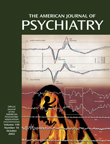Genetic and Environmental Influences on Trauma Exposure and Posttraumatic Stress Disorder Symptoms: A Twin Study
Abstract
OBJECTIVE: Posttraumatic stress disorder (PTSD) develops in only a subset of persons exposed to traumatic stress, suggesting the existence of stressor and individual differences that influence risk. In this study the authors examined the heritability of trauma exposure and PTSD symptoms in male and female twin pairs of nonveteran volunteers. METHOD: Scores on a traumatic events inventory and a DSM-IV PTSD symptom inventory were examined in 222 monozygotic and 184 dizygotic twin pairs. Biometrical model fitting was conducted by using standard statistical methods. RESULTS: Additive genetic, common environmental, and unique environmental effects best explained the variance in exposure to assaultive trauma (e.g., robbery, sexual assault), whereas exposure to nonassaultive trauma (e.g., motor vehicle accident, natural disaster) was best explained by common and unique environmental influences. PTSD symptoms were moderately heritable, and the remaining variance was accounted for by unique environmental experiences. Correlations between genetic effects on assaultive trauma exposure and on PTSD symptoms were high. CONCLUSIONS: Genetic factors can influence the risk of exposure to some forms of trauma, perhaps through individual differences in personality that influence environmental choices. Consistent with symptoms in combat veterans, PTSD symptoms after noncombat trauma are also moderately heritable. Moreover, many of the same genes that influence exposure to assaultive trauma appear to influence susceptibility to PTSD symptoms in their wake.



